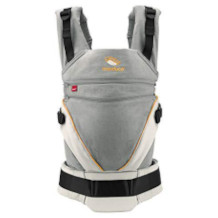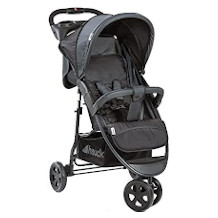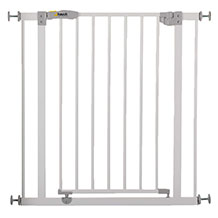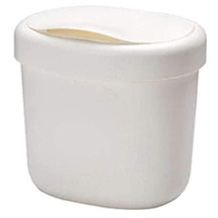Highchair purchasing advice: how to choose the right product
- What You Need to Know
- In a suitable high chair, babies sit safely and comfortably at the dining table with the rest of the family.
- Most models are suitable for children from six or eight months old who can already sit independently.
- Highchairs with infant carrier attachments can be used from birth.
- Restraining straps and safety bars protect the child from falling. In addition, the high chair must be tilt-proof and free of harmful substances.
- With a removable dining board, the child has its own table and can help itself to food independently.
For more relaxed family meals
At the latest when babies can sit independently and slowly but steadily develop into toddlers, they want to sit at the table during mealtimes. Many of them feel comfortable on their parents’ laps, but then mothers and fathers don’t really get to eat themselves. This is why highchairs, also known as baby highchairs, are a real relief for many parents as well as for the children. They allow relaxed meals with the whole family.
What are the advantages of highchairs?
Highchairs are characterised by their long legs, which bring the children sitting in them to eye level with the adults. This not only makes it easier for parents to feed their baby, but also encourages interaction and communication between family members. The seats of high chairs are smaller than those of “normal chairs” so that the children do not slide back and forth too much. In addition, they are usually padded and equipped with straps, thanks to which even fidgety children cannot simply fall off the chair. This means that children’s high chairs offer their offspring a safe and comfortable place at the dining table. Many models are equipped with a removable tabletop, also called a dining board. Parents can serve their baby meals on this and thus slowly introduce him or her to independent eating.
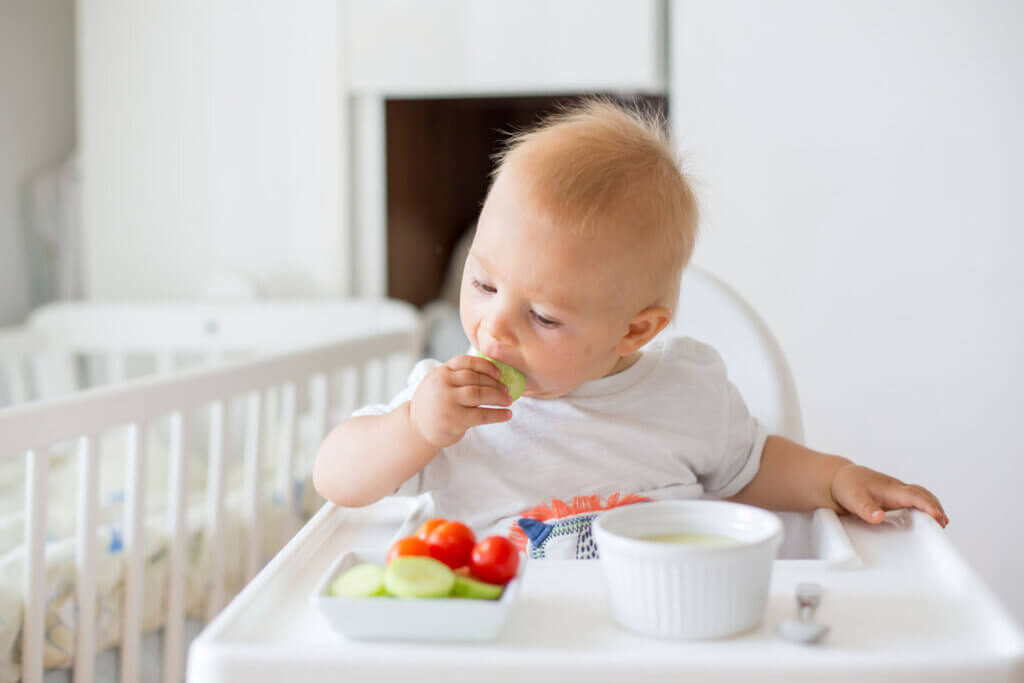
From what age are children allowed to sit in a high chair?
According to the manufacturer, most highchairs are designed for babies from six to eight months of age. At this age, many babies can already sit under their own power. This is a prerequisite for them to be allowed to sit in the high chair. This is because their spine is stable enough and their back muscles sufficiently developed to avoid damage from a forced sitting position. For younger babies, there are special baby highchairs with infant carrier attachments that are already suitable for newborns.
Different high chair models
Highchairs can be divided into different types according to their design and purpose. For example, folding high chairs and table seats are well suited for taking along on trips thanks to their compact size. Combination and stair high chairs, on the other hand, are characterised by their versatility and thus offer different possibilities of use. The latter can be individually adapted to age and size and can therefore be used for a particularly long time.
Folding highchairs: Space-saving storage
Folding high chairs consist of a foldable frame and a seat unit with a safety belt, footrest and removable eating board. The seat unit is typically not height-adjustable and does not have a height-adjustable backrest, which means it cannot be adjusted to the child’s height. This means that these chairs are often only suitable for smaller children up to the age of two. However, the backrest can usually be tilted backwards so that the child can assume a reclining position in the folding high chair if necessary. This means that the models with a reclining function can also be used as a rocker. Some folding high chairs are also equipped with castors. These models are also called multi-purpose high chairs.
Folding high chairs are typically made of plastic, which makes them particularly lightweight. They fold up compactly and can therefore be stored or transported in a space-saving way. This makes them ideal for travelling and for small flats or dining rooms. If the chair is not needed, you can fold it up in a few easy steps and it takes up hardly any space. Compared to stair high chairs and combination high chairs, folding high chairs are also cheaper to buy and particularly easy to clean.
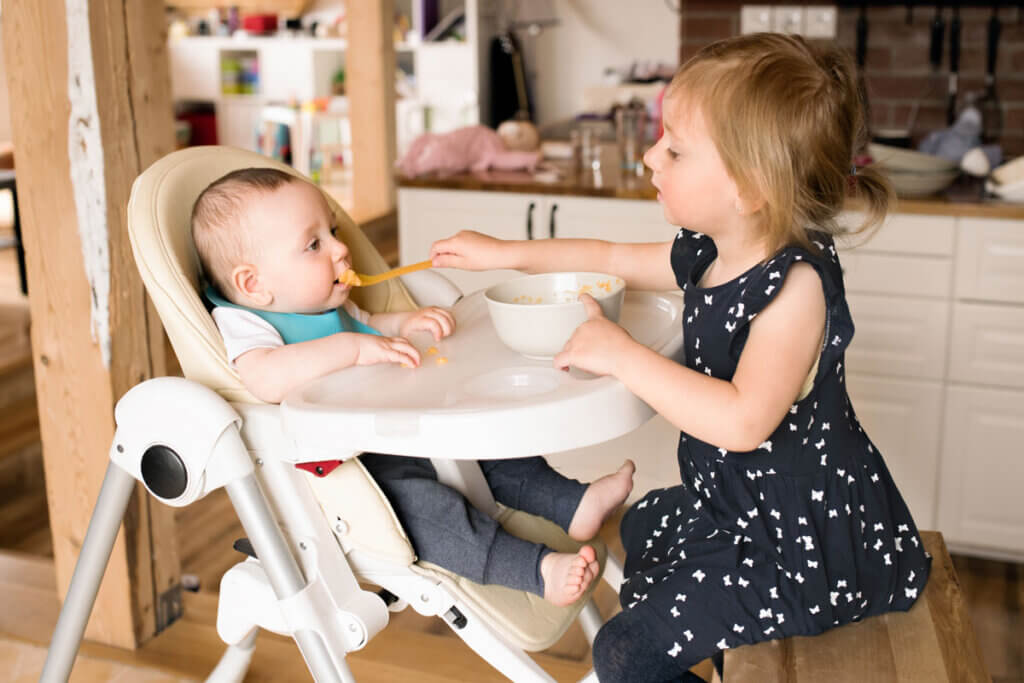
However, the compact design is often at the expense of stability. Folding high chairs made of plastic are less robust than stair high chairs made of wood, for example. Depending on the model, their maximum load capacity is between 15 and 25 kilograms. Space-saving high chairs are available from brands such as Joie, Hauck and Froggy.
Pro points
- Light and compact
- Can be stowed away to save space
- Comfortable to transport
- Reasonable price
- Easy to clean
Drawbacks
- More suitable for younger children
- Less stable than other models
Table seats: compact and flexible
Table seats, unlike the other high chair variants, do not have chair legs. Instead, the seat unit is attached directly to the table with clamps. There is no footrest or eating board. The child uses the table for eating.
The seats consist of an aluminium frame and a polyester cover. They can be folded compactly like folding high chairs, but thanks to the missing legs they are even more space-saving and lighter. This makes them a good solution for taking to restaurants and on outings. They are similarly inexpensive and easy to clean as folding high chairs. Due to their construction, the load capacity of the table seats is lower than that of other high chair variants. The maximum load capacity of most models is 15 kilograms. However, since the seat unit is not adjustable, babies are usually too big for the seat before they reach this weight anyway.
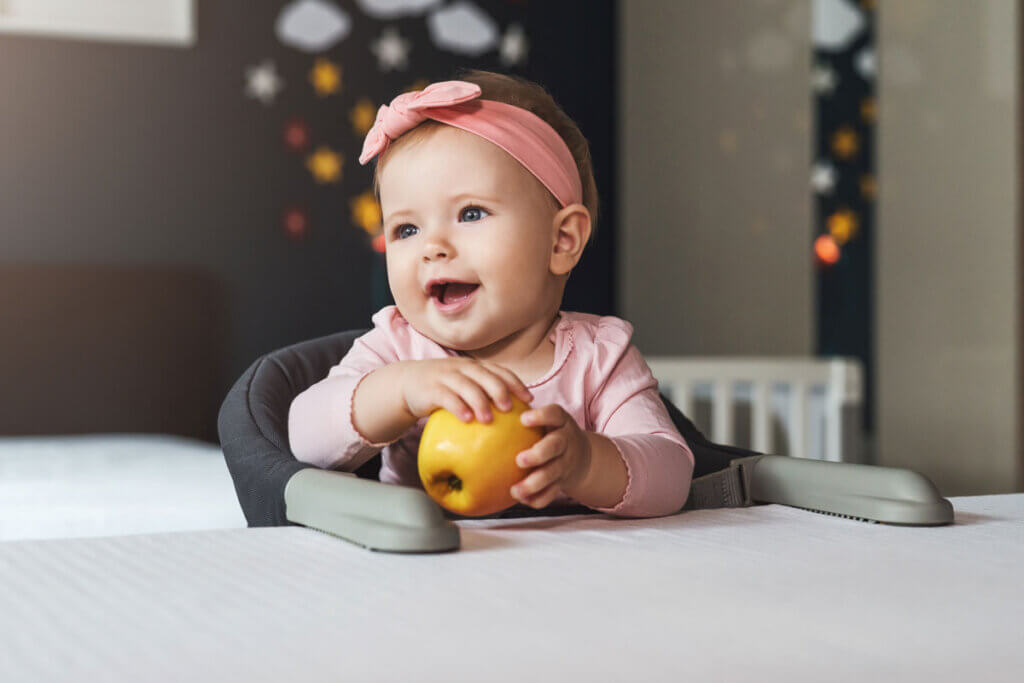
Table seats are not recommended for prolonged sitting and for everyday use, as they are less ergonomic than highchairs. Often the backrest is very short and cannot be adjusted to the child’s height. In addition, table seats have little or no padding. Well-known table seat manufacturers include Mosbaby, Fillikid and Chicco.
Pro points
- Particularly space-saving
- Light and compact
- Ideal for outings
- Reasonable price
Drawbacks
- Low carrying capacity
- Only suitable for younger children
- No footrest
- Not very ergonomic
Combi highchairs: convertible and long-lasting
Combi highchairs are a combination of a table and a chair in toddler size. Built on top of each other, the two components make up the high chair. In most models, the chair is equipped with cushions and a large, removable eating board. A harness system for safety is also part of the standard equipment.
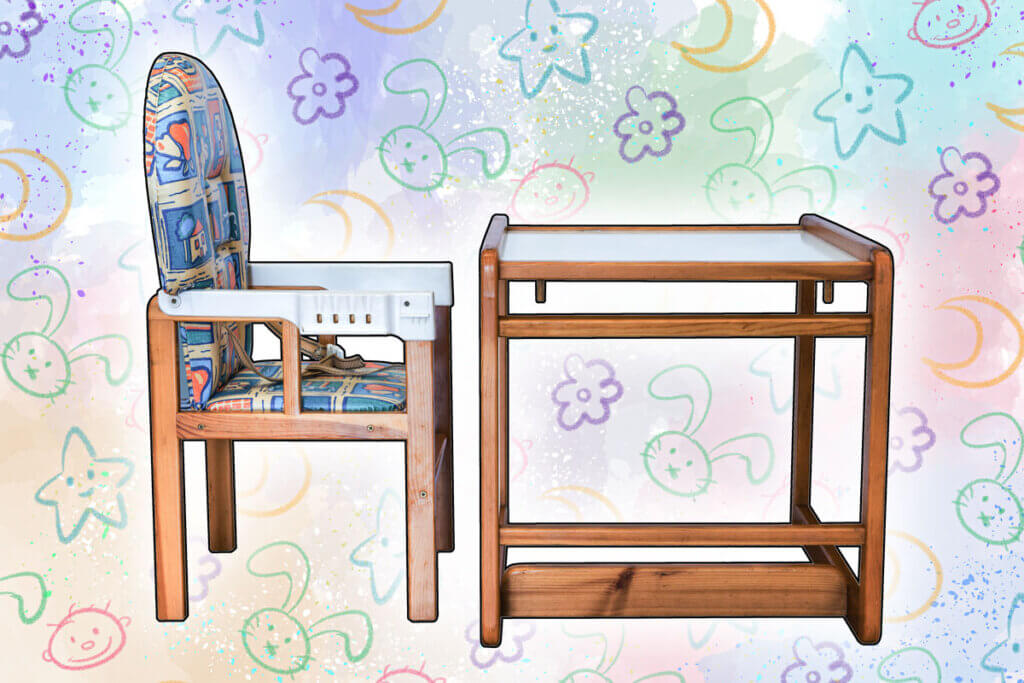
The seat of a combination high chair is not adjustable and is suitable for babies who can already sit under their own power, as well as toddlers up to the age of three to four. After use as a high chair, the small table and chair can continue to be used as a child’s chair and table.
Most combination high chairs are made of wood and varnished. Their construction makes them very robust, stable and durable on the one hand, but large and heavy on the other. Accordingly, they are recommended for families with enough space at the dining table. They are too bulky and heavy for transport. Compared to folding high chairs and table seats, combination models are somewhat more expensive. Well-known manufacturers of combination high chairs include roba, Costway and Schardt.
Pro points
- High stability
- Can be used as table and chair
- Large eating board
- Easy to assemble
Pro points
- High weight
- Takes up a lot of space
- Seat not adjustable
Stair high chair: Adaptable to grow with the child
Stair high chairs, also known as growing high chairs, are stair-shaped and have three steps: an eating board at the top, a seat in the middle and a footrest at the bottom. All steps can be adjusted several times, so that the high chair can be adapted to the size of the child and thus grow with him or her.
Stair high chairs are usually made of wood and are therefore very robust. Some have a maximum load capacity of 50 kilograms or more. Thanks to these properties, they can be used up to primary school age. Some stair high chairs, such as the Evomove Nomi, can be retrofitted with various attachments. For example, there are adapters for the infant carrier or mattress attachments with a harness so that they can use the models for newborns.
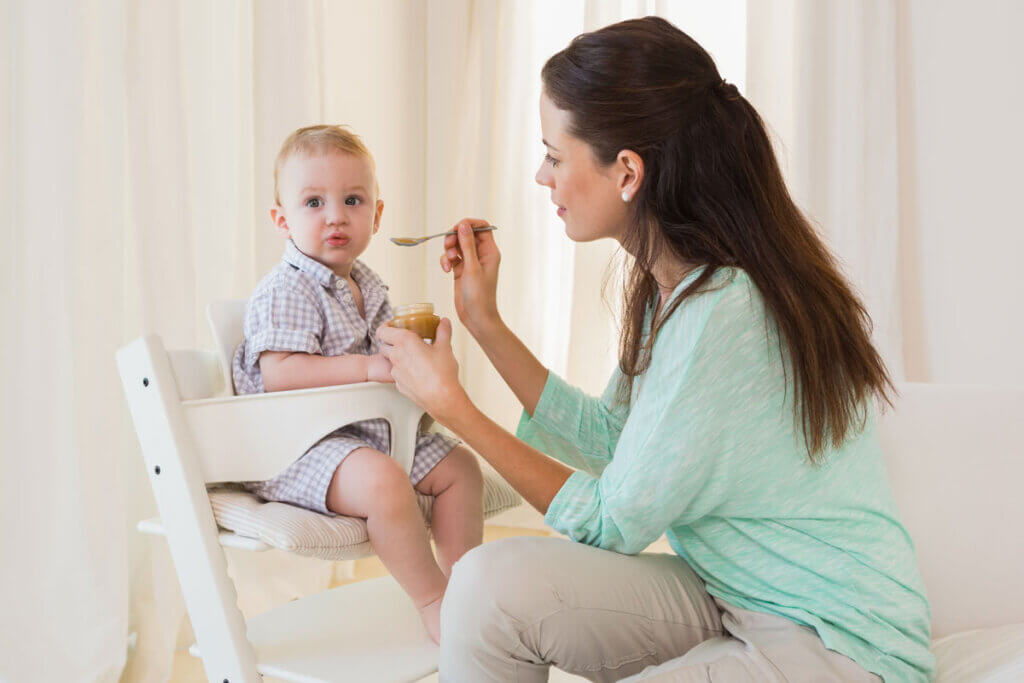
Although most stair high chairs can be folded to save space, they are bulkier and significantly heavier than folding high chairs and therefore less suitable for transport. Compared to other types of highchairs, stair highchairs are in the upper price segment. However, they make up for the price with their long service life. Popular stair high chairs include the Stocke Tripp Trapp, the Hauck Alpha and the Safety 1st Timba.
Pro points
- Very stable
- Durable
- Height adjustable
- High load capacity
- Can be used up to primary school age
Drawbacks
- Comparatively expensive
- High weight
- Not suitable for transport
Which high chair is suitable for which age?
High chairs with an adapter for the baby car seat or a rocker attachment can already be used for your newborn. This way, your offspring can sit at the table for family meals from birth. However, in order not to overload the still sensitive spine, the baby should not spend more than 40 minutes at a time in a bent position. As soon as the baby can sit independently, around six months of age, any high chair model is suitable. Table seats as well as folding and combination high chairs usually become too small from the age of two or reach their maximum load capacity then. Stair high chairs can be used for longer. They are adjustable and can carry a load of up to 50 kilograms, so that children up to primary school age can sit in them. For children from about two years of age, simply remove the stirrups and straps from these models to create a raised seat for toddlers.
Finding the right high chair
Highchairs differ in their dimensions, materials and maximum load capacity, among other things. Models made of wood are usually very robust and can be used for a long time, while plastic parts are particularly easy to clean. High chairs with many adjustment options can be adapted to the child’s body size and enable an ergonomic sitting position. In addition to ergonomics, safety is particularly important. Furthermore, features, practical accessories and, last but not least, price play a role in buying the right high chair for children.
Material and weight
Folding high chairs and table seats are designed for easy transport and are accordingly lightweight. Lightweight models weigh less than five kilograms. They are usually made of plastic and a metal frame. The latter is often made of aluminium.
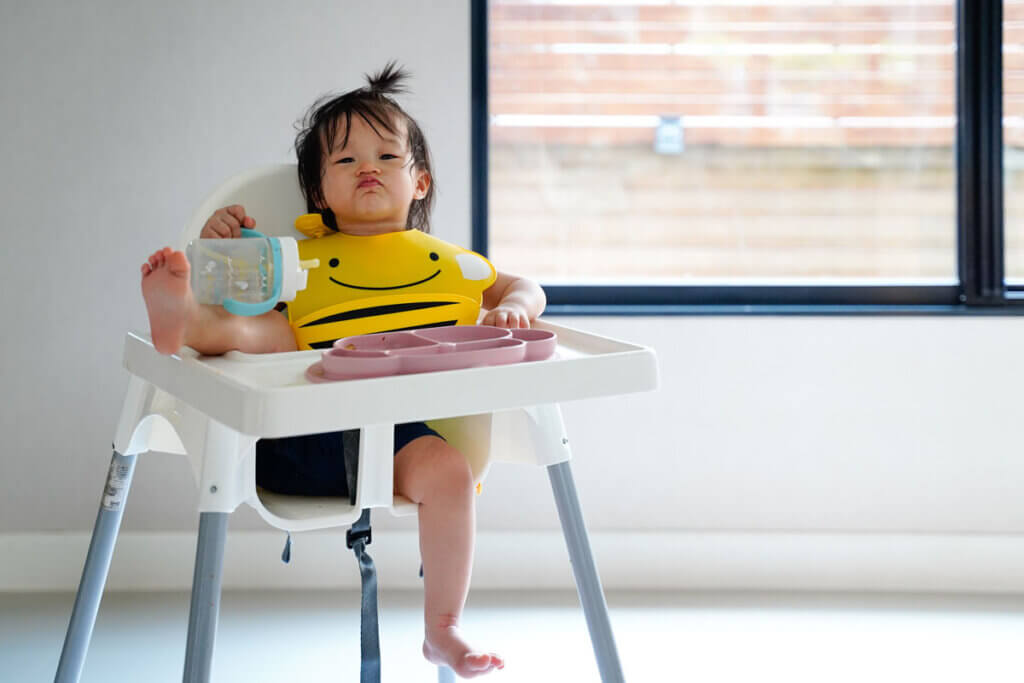
Combination and stair high chairs, on the other hand, are often made entirely of wood. Some elements, such as parts of the seat or the eating board, are made of plastic. Wooden highchairs are more robust than plastic models, have a high load-bearing capacity and can therefore be used for a long time. On the other hand, they are heavier and bulkier. Models made of solid wood are particularly robust and stable. The heavier stair and combination high chairs weigh between six and ten kilograms.
What is the maximum weight of a high chair?
The maximum load capacity of a highchair is given in kilograms and indicates how much weight it can carry. It thus determines up to what age children can use the high chair. Table seats have the lowest load capacity among the high chair variants with a maximum of 15 kilograms. On average, children reach this weight at the age of two to three. With a maximum load-bearing capacity of between 15 and 20 kilograms, folding high chairs carry only a little more than table seats. Sturdy combination and stair high chairs, on the other hand, can carry up to 50 kilograms. Theoretically, this means that 10 to 13-year-olds can still sit on them safely. In practice, however, it becomes quite cramped from primary school age onwards.
Adjustment options
Various adjustment options make it possible to adapt the high chair to the child’s height and needs. The backrest of mer-purpose highchairs can usually be tilted backwards in several stages, but in some cases it can also be adjusted steplessly. With some models, you can convert the seat into a rocker in this way; instead of sitting, the child then assumes a lying position. These models are already suitable for babies who are not yet able to sit independently.
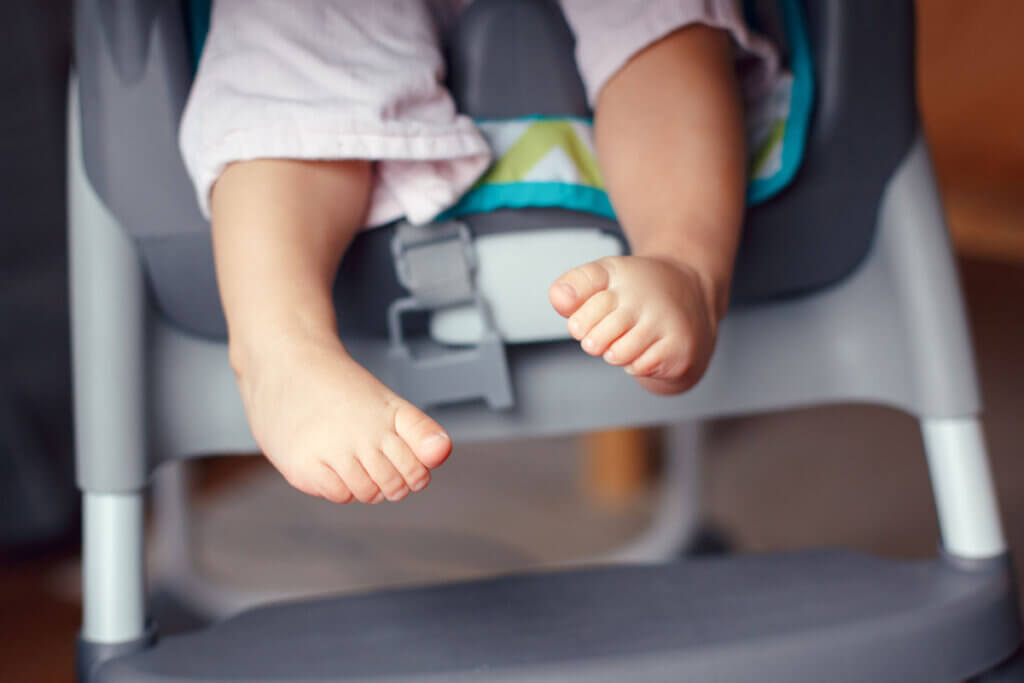
The seat and footrest of most highchairs are height-adjustable. This allows you to adjust the seat height to your dining table and adjust the footrest so that your child’s knees form a right angle when seated. In both cases, stepless adjustment is practical. The dining board is usually removable, but in most models it is at armrest height and cannot be moved. Only in the case of stair high chairs is it height-adjustable in several stages. If the seat of the high chair is still too big for your baby, many manufacturers allow you to add suitable seat reducers. Alternatively, the seat depth of some highchairs can be reduced by pushing the backrest forward.
Dimensions
The dimensions of the high chair are especially important if there is little space available. Table seats that are attached directly to the table and measure around 40 x 40 centimetres (length x width) are particularly space-saving. They are a good solution when there is not enough space in the dining room to accommodate an overhanging high chair. More important than the dimensions of these models is the maximum tabletop width to which they can be attached. Depending on the model, this varies between four and ten centimetres.
If the high chair is only to be used at mealtimes and is otherwise to be stored in a space-saving way, a folding high chair is a good choice. Folding or multi-purpose high chairs with castors that can be easily moved back and forth are particularly practical for these purposes. When assembled, folding highchairs have a footprint of about 60 x 80 centimetres, when folded they often have a footprint of less than 60 x 20 centimetres.
If you do not have to worry about space, it is best to choose a stair high chair or a combination high chair. With a footprint of around 50 x 60 centimetres, both variants take up less space than most folding high chairs when assembled. However, the combination and stair models often cannot be folded to save space.
Safety
In order for babies and children to sit safely in their high chair, it needs a tilt-resistant stand and a reliable belt system that prevents them from sliding down. Highchairs throughout Europe are subject to the safety standard DIN EN 14988, which specifies requirements for stability, restraint systems, crushing points and filling materials, among other things.
Robust combination and stair high chairs are particularly stable. The “Golden M”, the quality seal of the Deutsche Gütegemeinschaft Möbel e.V. (German Quality Association for Furniture), also provides guidance on stability. Highchairs with this seal have been tested for durability, stability and quality of workmanship in accordance with strict test criteria. If you want to be on the safe side, you can place a non-slip mat underneath and additionally secure the high chair to the table with a baby chair holder. If the high chair is equipped with castors, they need a parking brake for a stable stand.
The safety belt in most highchairs is a five-point belt system, which is also used in child car seats and buggies. The belt runs on both sides over the shoulders and hips and is fastened at stomach level. It is infinitely adjustable and can therefore be adapted to the size of the child. For comfort, a high chair with a padded belt system is recommended. Stair high chairs are usually also equipped with an anti-slip device that runs between the child’s legs. This can be removed for older children.
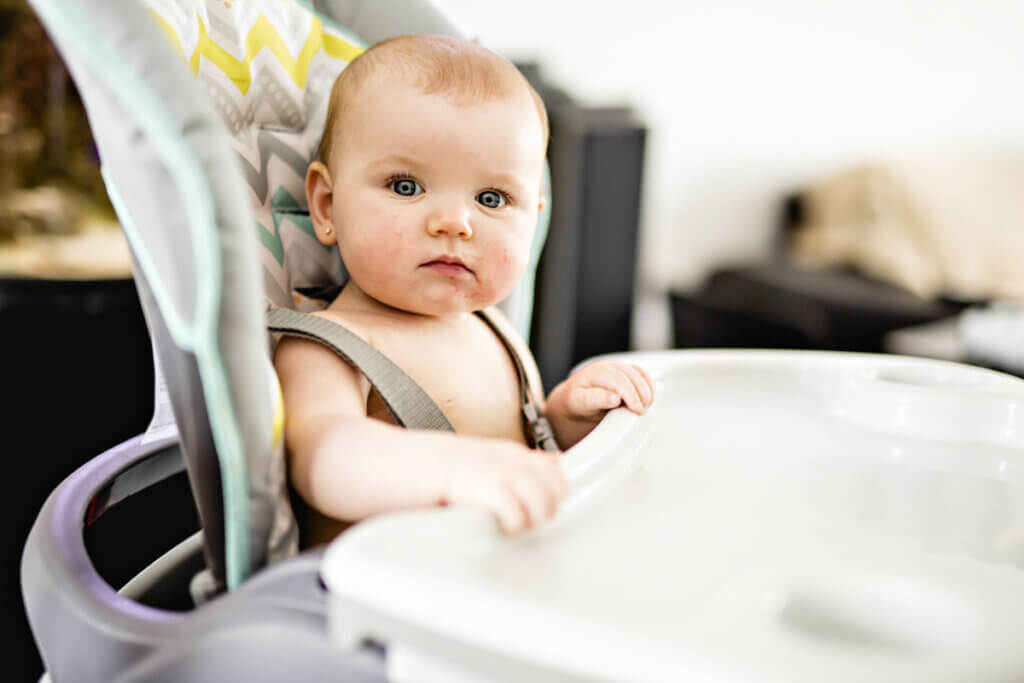
Free of harmful substances
It is particularly important that the parts of the high chair with which the child comes into direct contact are free of harmful substances. Plasticisers pose a risk in highchairs with plastic parts. Wood is generally harmless in this respect, but varnish, impregnation and glue can be contaminated with harmful substances. The same applies to belts and upholstery. Some manufacturers voluntarily have their products tested for harmful substances by independent laboratories. You can recognise these by the following seals:
- Blue Angel: resource-saving production, avoidance of substances that are harmful to health and the environment.
- natureplus: no harmful ingredients, environmentally friendly production
- ÖkoControl: low in pollutants and emissions, made from renewable raw materials
- TÜV environmental seal: no carcinogenic or fertility-damaging substances, mainly made of natural materials
Equipment and accessories
While a harness system is standard equipment, an eating board and footrest are not included in all highchairs. A footrest is important for an ergonomic sitting posture. If it is not included as standard, you should therefore retrofit it. A dining board, on the other hand, is not absolutely necessary, but very practical. It gives the child its own table and only spills food on it. Alternatively, you can push the high chair to the dining table so that the child can also use it.
The dining board of most highchairs is removable and made of plastic. This makes it easy to clean. A raised edge is practical to prevent food or dishes from falling off. Some also have a recess for drinks. Some highchairs also come with a drink holder for bottles or cups.
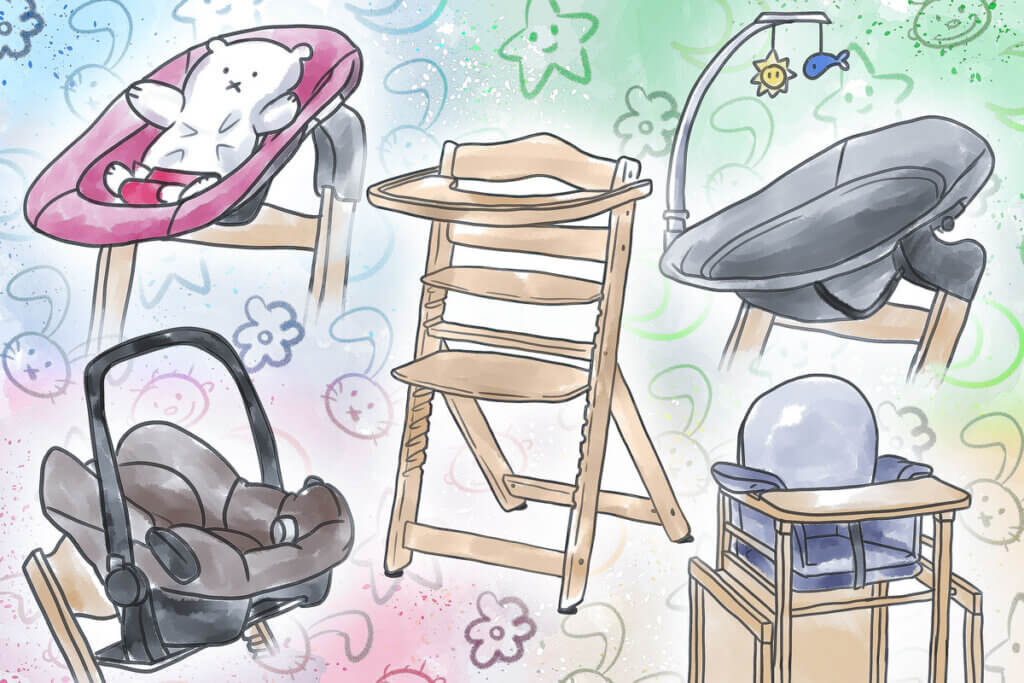
Especially for multi-purpose and stair high chairs, manufacturers often offer attachments with which you can adapt the high chair to the body size of your baby. There are various options that allow you to use the high chair for newborns. A baby car seat attachment allows you to attach the baby car seat to the high chair. There are also mattress-type newborn attachments and rocker attachments. The latter are often equipped with a play arch. For babies who can already sit but for whom the seat is still too big, manufacturers offer seat reducers. Alternatives are cushions or small pillows that you slide between the child and the backrest to reduce the seat depth.
How much do highchairs cost?
The cheapest option is the table seat for about 30 to 80 euros. Inexpensive folding and multi-purpose high chairs can be found for 50 euros and up, more expensive versions cost up to 300 euros. Stair and multi-purpose high chairs tend to be the most expensive. Prices for these also start at around 50 euros. For high-quality models with extensive features, however, you have to plan on 80 to 300 euros. On the other hand, they are usually very durable and can be used for several generations.
Care and maintenance of the high chair
When your child makes his or her first independent attempts at eating, the dining area often looks like a wild party. Therefore, it is practical if the high chair can be cleaned as easily as possible. Plastic parts and varnished wood can be cleaned with a damp cloth and a little washing-up liquid. It is best to wipe the high chair down immediately after the meal to avoid dried-on stains and discolouration. Upholstery with plastic covers can also be easily wiped clean with a damp cloth. For other models, you can remove the covers and put them in the washing machine. Follow the instructions on the washing label or in the operating instructions.
About once a week, it is recommended to clean the high chair completely, including the chair legs, seat, footrest and backrest. Pay particular attention to niches and crevices where food residues can quickly accumulate.

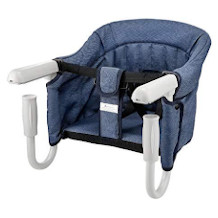
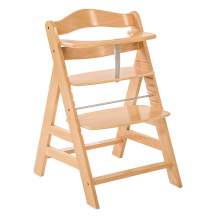

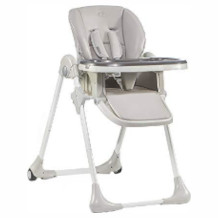
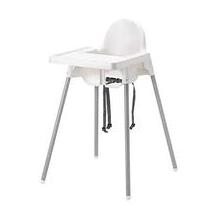
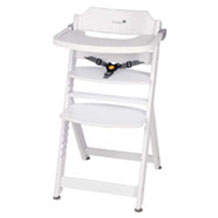
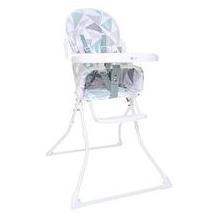
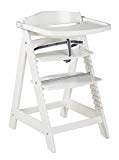
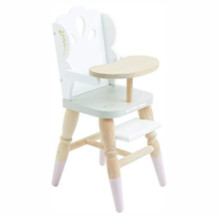
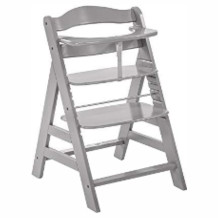
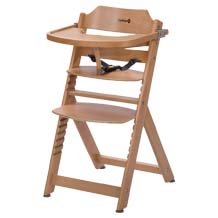
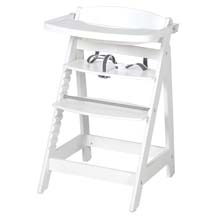
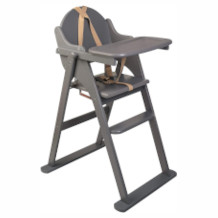
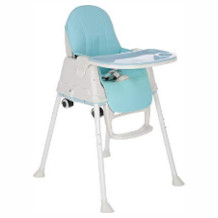

 13,408 reviews
13,408 reviews

